In Texas, there is almost no limitation on the right of private employers to adopt drug and alcohol testing policies for their workers. However, there is specific documentation needed for a successful TWC unemployment claim (see below for more specific information). Government employers do not have them same freedom, due mainly to court decisions holding that testing employees without showing some kind of compelling justification violates government employees’ rights to be safe from unreasonable searches and seizures.
Drug testing, for example, may be mandated for some types of employees, as is the case with workers subject to U.S. Department of Transportation mandatory testing guidelines. Some federal contracts and grants require employers to adopt drug-free workplace policies and possibly even to provide for drug-testing of employees. Other employers may be under no legal obligation to do testing, but feel it is needed due to reports that some employees may be unsafe due to being under the influence of drugs or alcohol. Regardless of the reason for testing, it is essential to carefully draft the policy and consider the various legal issues.

.png?width=500&height=500&name=Blue%20and%20White%20Classic%20Shield%20Financial%20with%20Star%20Logo%20Design%20(1).png)


